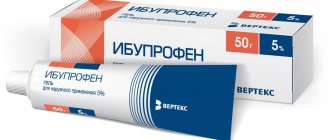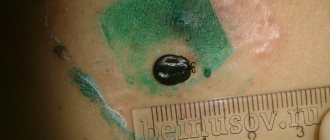Why measure temperature?
The measurement has primarily diagnostic value. We approach conditions in which the temperature is above or below the conventional limit of 38 degrees Celsius a little differently. Since most fevers in our latitudes go away on their own within 3 days, in the absence of threatening symptoms, I recommend observation for 72 hours after the first rise in temperature above 38. If after this period it rises again above 38, a doctor’s examination is necessary to decide whether whether this is a lingering virus (and we continue to observe) or whether more aggressive intervention is required. Thus, we measure temperature to determine treatment tactics, but not to resolve the issue of antipyretic treatment.
Is homeopathy necessary?
In pediatric practice, homeopathy has the right to exist because of its safety, first of all. But there is another undeniable advantage of this group of drugs. Homeopathic medicines do not a priori lower the temperature, but activate the body’s defenses. After taking two or three correctly selected doses, the temperature goes away. Of course, you need to consult your doctor, since each drug has its own characteristics. Here are some examples:
- Aconite stops fever at an early stage of its development, if the temperature rises sharply, the disease progresses intensively, the drug simultaneously relieves anxiety and restlessness;
- Belladonna is necessary at a temperature that is accompanied by delirium, redness of the face, cold feet - sore throat, otitis media;
- Ferrum phosphoricum is used at the very beginning of the disease, when it is clear that there is inflammation, but there are still no symptoms to clarify the localization of the process, the temperature creeps up slowly, the face is either pale or with red spots, the baby behaves restlessly: with purulent sore throat, such a drug is not will help;
- Pulsatilla is a fever medicine for capricious children; the main property of the medicine is the ability to calm children, relieving stress hyperthermia.
Taking homeopathic medicines is special. It is better to give one grain at a time, which needs to be absorbed. Up to 3 years, the medicine is dissolved in water (a couple of granules per glass of water). The first 3 doses are taken every couple of hours, after improvement - less often. If fever returns after discontinuation of the drug, treatment should be continued.
If there is no result from taking three doses, the drug is changed. If the temperature does not fall below 39°C or remains at low-grade levels for more than 5 days, you must call a doctor. This is especially true for newborns. Antipyretic therapy should be carried out against the background of treatment of the underlying pathology that caused the fever.
How to decide whether to lower the temperature?
The answer is simple, regardless of the cause of the temperature. It doesn’t matter whether it is associated with an infection or a post-vaccination reaction, with teething or other reasons.
We lower the temperature when the child feels unwell.
There is nothing so beneficial about a rise in temperature that you have to endure it, and nothing so harmful that you need to take medicine while feeling normal. Therefore, when deciding on the issue of fever reduction, we look not at the thermometer, but at the child. If he feels bad, he’s breathing heavily, lethargic, his muscles or head hurt - you even lower 37.8. But if you can't get a child at 38.8 to get the medicine into him, then there's no need for the medicine.
Vomiting, diarrhea and fever in a child
Such a serious condition occurs due to intoxication, therefore, in the complex treatment of such conditions, drugs are prescribed that rid the body of toxins. Experts identify a number of diseases that are accompanied by exactly this set of symptoms. Among them there are food poisonings contaminated with various microorganisms.
In case of diarrhea, vomiting and fever in a child, it is recommended to take sorbents, consume large amounts of non-carbonated liquid and maintain an optimal temperature in the room, and frequently ventilate the room.
How to reduce temperature?
Since this question is asked only by parents of young children, I will not write about medications for older children.
There are only three home remedies for kids to reduce their fever: the physical method, paracetamol (acetaminophen) and ibuprofen. If the child's arms and legs are warm, he needs to be undressed, you can hang him with wet towels, wipe him with water at room temperature, wrap his head in a wet scarf, or even put him in a cool shower. Whether or not to give medicine is your choice. Depends on your level of panic and your child's behavior. Small children cool down well on their own; sometimes it’s enough just to free them from their clothes. If your hands and feet are cold—vasospasm has begun—the physical method is not recommended, and the only option left is medication.
What to do if a child has a temperature of 39 ºC?
A temperature of 39ºC is considered high for a child’s body. However, in this case, you should also not give an antipyretic without consulting a doctor. A child’s fever is an excellent opportunity for the body to fight off the infection on its own. In this way, immunity to the outside world is developed. In addition, some drugs can cause an allergic reaction or a number of side effects, so it is better to consult a specialist first.
What to do if a child has a temperature of 39ºC?
- Seek medical help;
- Do not wrap your child in a blanket to make him feel even hotter;
- Doctors recommend wiping the baby with a damp towel;
- It is better to abandon the old-fashioned methods - do not wipe your child with vinegar or alcohol, as an allergic reaction or intoxication may occur;
- Apply a cool compress to the forehead;
- Give as much liquid as possible - warm milk, water, compotes and fruit drinks.
How to dose?
The easiest way to dose Nurofen is: syrup dose (ml) = 1/2 weight (kg). This is based on a single dosage of 10 mg/kg ibuprofen.
Paracetamol is dosed at 15 mg/kg. If you dose the most popular syrup - Panadol - you can multiply the child’s weight in kg by 0.625.
A single dose can be given no more than once every 4 hours, but preferably no more than 3 times a day.
You should not use the dosage according to age, which is often placed on the packaging of drugs. This is dangerous because children of the same age weigh very differently. Correctly dose medications by weight or body surface area, but not by age.
Troychatka from temperature for children
At elevated temperatures, doctors prescribe medications that relieve painful symptoms. Triad is considered one of the most effective remedies for the disease. This is a preparation of three natural herbs.
The troika for fever helps to cope with acute respiratory viral infections and influenza. This remedy can be used when a child has an elevated temperature due to an inflammatory process, seasonal cold or flu.
An example of such a miracle cure is Troychatka from Evalar. This is a specially developed herbal complex of extracts of three herbs with an antiparasitic effect. This drug does not cause allergies in the baby, as it consists of natural ingredients - extracts and flowers of tansy, wormwood and clove buds.
All of the above medical drugs can be purchased, as well as order the manufacture of drugs in the Gubernskiye Pharmacies network at a reasonable price. Place an order in our online store or call 2911-555.
When to call an ambulance?
There is no need to call an ambulance. No isolated increase in temperature is a reason for this. Isolated means that there are no other threatening symptoms, such as an unclear rash, severe shortness of breath or a bulging fontanel. Yes, an ambulance can always lower the temperature - with a lytic mixture or a hormone. But this is not necessary and may cause harm. The drug that forms the basis of the lytic mixture - analgin (metamizole) - is prohibited in children throughout the civilized world. In addition, the ambulance is more likely to offer hospitalization.
Fever is not an emergency condition. If it worries you, lower your temperature and go to the doctor. Or call a doctor at home as planned.
Source: telegram.me/fediatrix
Antipyretics for children
Candles
+
Antipyretic drugs for children, produced in the form of rectal suppositories, can be used from the first months of a child’s life7. Their use at a very early age is more comfortable and less problematic than taking oral forms. Also, children's antipyretic suppositories are preferable if an increase in body temperature is accompanied by vomiting or there is a predisposition to the development of food allergic reactions1,2,3.
–
At the same time, antipyretic suppositories for children, in addition to their advantages, also have disadvantages. Potentially, they can provoke irritation of the mucous membrane of the anal canal. In addition, rectal suppositories in rare cases can cause the development of such negative side reactions as abdominal pain, nausea, and stool disorders.
Suspensions
+
Antipyretic drugs for children, available in the form of suspensions, make it possible to simultaneously use insoluble and soluble components1,2.
–
The main disadvantages of this pharmacological form: instability (sufficiently rapid sedimentation of suspended particles, which does not allow precise dosing of the medicine), the presence of flavorings that can cause allergies, and a short shelf life.
Powders
+
Children's antipyretics, produced in the form of powders for preparing a hot drink, can consist of one, two or more components and simultaneously provide antipyretic, analgesic and anti-inflammatory effects. This dosage form, manufactured on equipment designed for the finest grinding, has a larger area of contact with body tissues and, as a result, has a more pronounced pharmacological effect. Children's antipyretic in powder form is easy to dose, it is relatively easy to prepare and is easy to transport.
–
In some cases, the powder product may acquire foreign odors, become damp when exposed to moisture, and deteriorate when exposed to light.
Syrups
+
Antipyretic syrups for children are water-based medications. They contain an active antipyretic component, sucrose and excipients. They have a fairly pleasant taste, are easy to dose and, due to their dissolved state, begin to act almost immediately1,2.
–
Children take antipyretic drugs in the form of syrups with much greater pleasure than tablets. However, due to the high content of sugar and flavorings, these products can provoke the development of an allergic reaction, and the thickness and cloying sweetness can cause nausea and vomiting in a child.
Pills
+ Antipyretic tablets for children are a dosage form for oral administration, obtained by pressing or molding from a mixture of active and auxiliary substances. As a rule, they contain the same active ingredients as antipyretic drugs for adults, only in a lower dosage. The advantages of tablet forms include dosing accuracy, portability, ease of transportation, long shelf life, and prolonged action2.
–
Antipyretics for children in the form of tablets are not suitable for all ages, which should be taken into account when choosing a drug. In addition, many children refuse to “drink bad-tasting medicine”; some develop a gag reflex, and if there is severe vomiting, taking pills is impossible.
Based on all of the above, the conclusion suggests itself: the question of which antipyretic is best for a child cannot be answered unequivocally. Any dosage form intended to stabilize temperature indicators must be used taking into account the age restrictions specified in the instructions and in strictly recommended doses. A preliminary consultation with a doctor is required.
How to choose an antipyretic drug for a child
Focus on the following points:
- Child's age. Not all forms and not all drugs are suitable for young children.
- The presence of intolerances and allergies in parents and relatives. In the age of allergic reactions, the background and the presence of predispositions are important.
- Behavioral and other characteristics of the child. For all their convenience, antipyretic suppositories may not find their use in sensitive children. Not every parent can overcome their categorical protests and rebellions at the slightest attempt to approach them with the drug.
There are children (and even adults) who cannot swallow pills. Others have irresistible vomiting on syrups and suspensions.
Can I give aspirin to a child?
Aspirin is strictly prohibited for use in children with fever!
Its side effects are very serious for the health of babies. Various homeopathic medicines are acceptable for circulation on the Russian market, but their evidence base still requires research. They have not yet been included in the clinical recommendations and guidelines for pediatricians by the Ministry of Health of the Russian Federation.










